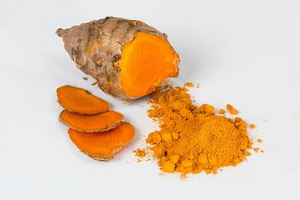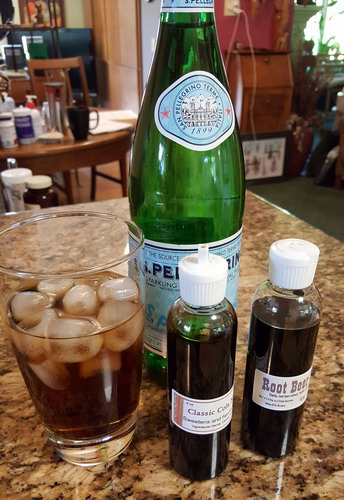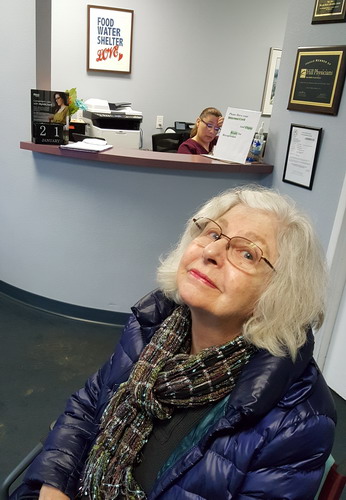 A patient called the office the other day asking if I had anything for memory. I told Sherry to say yes, but the answer to that question is like saying yes I have something to improve health. Memory support is a huge subject because so many different things affect memory. There is no magic pill that
makes everyone's memory better. There are pills that might work like magic for one person or another, but it all depends on what is causing your memory problems. Let's review some of the issues that cause memory problems and some of the support for those issues.
A patient called the office the other day asking if I had anything for memory. I told Sherry to say yes, but the answer to that question is like saying yes I have something to improve health. Memory support is a huge subject because so many different things affect memory. There is no magic pill that
makes everyone's memory better. There are pills that might work like magic for one person or another, but it all depends on what is causing your memory problems. Let's review some of the issues that cause memory problems and some of the support for those issues.
 Probably the simplest and most common problem that affects memory is aging. As we get older, the factories inside each cell in our body that produce the energy we need to do everything break down. These factories are called mitochondria and they produce the energy molecule known as ATP. Everything we
do, including form memories, requires ATP. If our brain does not have enough of this energy molecule, it can't form new memories. Usually, it can still access old memories as they are already “made”. But new memories take too much energy to form. What breaks down these energy factories is similar to industrial toxic waste. It is called free radicals. These form when we break down sugar to form ATP in the energy factories. Sugar is like
coal – a very dirty kind of fuel. This toxic waste gradually destroys the mitochondria. A much more efficient and much cleaner fuel source for forming ATP is ketones from fat. This is more like a power plant that burns clean natural gas for energy. So a major boost in brain function can be had by switching over to a ketone-based energy system in your body by living on a keto diet. An alternative specifically for memory patients is to supplement the diet with
C8 caprylic acid – the short-chain fatty acid that your liver almost immediately turns into ketones. Your brain can use this alternative energy source to improve memory. This is what is in my Brain Boost product in the office.
Probably the simplest and most common problem that affects memory is aging. As we get older, the factories inside each cell in our body that produce the energy we need to do everything break down. These factories are called mitochondria and they produce the energy molecule known as ATP. Everything we
do, including form memories, requires ATP. If our brain does not have enough of this energy molecule, it can't form new memories. Usually, it can still access old memories as they are already “made”. But new memories take too much energy to form. What breaks down these energy factories is similar to industrial toxic waste. It is called free radicals. These form when we break down sugar to form ATP in the energy factories. Sugar is like
coal – a very dirty kind of fuel. This toxic waste gradually destroys the mitochondria. A much more efficient and much cleaner fuel source for forming ATP is ketones from fat. This is more like a power plant that burns clean natural gas for energy. So a major boost in brain function can be had by switching over to a ketone-based energy system in your body by living on a keto diet. An alternative specifically for memory patients is to supplement the diet with
C8 caprylic acid – the short-chain fatty acid that your liver almost immediately turns into ketones. Your brain can use this alternative energy source to improve memory. This is what is in my Brain Boost product in the office.
 The second consideration for memory formation is brain inflammation. If you have inflammation in the gut or lungs, you also have inflammation in the brain. Inflammation messes everything up, including memory formation. A lot goes into controlling inflammation in our bodies. Again, there is no
simple pill you can take to rid the body of inflammation. There are many kinds of inflammation. Medicines have been created for suppressing one inflammatory pathway or another, but they all have negative side effects because inflammation is necessary for the health of the body in certain circumstances. The trick is to reduce the inflammation down to healthy levels. The biggest inflammatory challenge to the body is digestion and the second is breathing. Areas of the
body that are responsible for letting outside stuff like air and food into the body are vulnerable to also letting poisons, toxins, and pathogens into the body. Consequently, a lot of our immune cells crowd around these areas. Inflammatory foods like vegetable oils, grains, dairy, pesticides, preservatives, polluted air, and so on all trigger immune responses that generate inflammation. So step one for reducing inflammation in the body is to breathe clean air and eat
non-inflammatory foods.
The second consideration for memory formation is brain inflammation. If you have inflammation in the gut or lungs, you also have inflammation in the brain. Inflammation messes everything up, including memory formation. A lot goes into controlling inflammation in our bodies. Again, there is no
simple pill you can take to rid the body of inflammation. There are many kinds of inflammation. Medicines have been created for suppressing one inflammatory pathway or another, but they all have negative side effects because inflammation is necessary for the health of the body in certain circumstances. The trick is to reduce the inflammation down to healthy levels. The biggest inflammatory challenge to the body is digestion and the second is breathing. Areas of the
body that are responsible for letting outside stuff like air and food into the body are vulnerable to also letting poisons, toxins, and pathogens into the body. Consequently, a lot of our immune cells crowd around these areas. Inflammatory foods like vegetable oils, grains, dairy, pesticides, preservatives, polluted air, and so on all trigger immune responses that generate inflammation. So step one for reducing inflammation in the body is to breathe clean air and eat
non-inflammatory foods.
 Once you have the diet cleaned up then you can consider specific nutrients and medicinal herbs that reduce brain inflammation. No amount of supplements or medicines can counteract a bad diet or lifestyle, so that comes first. But once that is in order then we can consider specific helpful nutrients.
The two most powerful for the brain and memory are curcumin from turmeric and resveratrol from Japanese knotweed. There have now been thousands of scientific studies demonstrating the benefit of these herbs on calming inflammation in the brain. There are a number of co-factors in the form of vitamins and minerals needed to help these do their job. A good formulation will have these co-factors present in the right amounts. In the office, I use Neuroflam for this
purpose.
Once you have the diet cleaned up then you can consider specific nutrients and medicinal herbs that reduce brain inflammation. No amount of supplements or medicines can counteract a bad diet or lifestyle, so that comes first. But once that is in order then we can consider specific helpful nutrients.
The two most powerful for the brain and memory are curcumin from turmeric and resveratrol from Japanese knotweed. There have now been thousands of scientific studies demonstrating the benefit of these herbs on calming inflammation in the brain. There are a number of co-factors in the form of vitamins and minerals needed to help these do their job. A good formulation will have these co-factors present in the right amounts. In the office, I use Neuroflam for this
purpose.
 For those of you that would like to stick a toe deeper into the deep well of inflammation, here is a touch more information. Inflammation is a bit vague – what is it anyway? Inflammation is about our immune system reacting to an insult of some sort. The immune system is our police force.
They are there to shoot the bad guys and carry them away. All that shooting involves the release of various nasty chemicals called cytokines which produce swelling, redness, and pain, the hallmarks of inflammation. What is really happening is that the cytokines open up the blood vessels in the insulted area to allow more immune cells access to the area. This increased blood flow produces redness and swelling. The pain is to tell us to keep our hands out of the area, like
the sirens and flashing red and blue lights the police use. This is all well and good unless the “police” immune cells can't identify a clear enemy, such as when the problem is due to a concussion, or brain bleed, or toxic chemicals, or dozens of other insults that confuse the immune system. Without a clear enemy, the immune system often goes overboard and produces excess inflammation that now damages the healthy tissue. Certain nutrients can help calm down this
overreaction.
For those of you that would like to stick a toe deeper into the deep well of inflammation, here is a touch more information. Inflammation is a bit vague – what is it anyway? Inflammation is about our immune system reacting to an insult of some sort. The immune system is our police force.
They are there to shoot the bad guys and carry them away. All that shooting involves the release of various nasty chemicals called cytokines which produce swelling, redness, and pain, the hallmarks of inflammation. What is really happening is that the cytokines open up the blood vessels in the insulted area to allow more immune cells access to the area. This increased blood flow produces redness and swelling. The pain is to tell us to keep our hands out of the area, like
the sirens and flashing red and blue lights the police use. This is all well and good unless the “police” immune cells can't identify a clear enemy, such as when the problem is due to a concussion, or brain bleed, or toxic chemicals, or dozens of other insults that confuse the immune system. Without a clear enemy, the immune system often goes overboard and produces excess inflammation that now damages the healthy tissue. Certain nutrients can help calm down this
overreaction.
 The third big area of concern that causes problems with memory is poor blood flow to the brain. You need good blood flow for both oxygen and nutrients. Without oxygen, your brain cells can only last a few minutes – 20 at most. So anything that reduces good blood flow compromises all brain
functions, including memory. The first obvious issue would be problems with the hardening of the arteries. Hardened arteries restrict blood flow and reduce the movement of oxygen and nutrients into the brain. What causes hardened arteries? Again the culprit is inflammation. The mechanism is complex, involving turbulence roughening up the artery walls combined with poor production of something called nitric oxide which opens up the blood vessels. This produces
small lesions in the walls of the arteries which the immune system tries to patch up but often ends up producing plaque with damaged cholesterol. This cholesterol patch keeps the vessel from blowing out but ends up blocking/reducing blood flow. We can open up blood flow with nutrients that increase nitric oxide production (Nitric Balance), and directly increase oxygen levels in the brain (Neuro O2).
The third big area of concern that causes problems with memory is poor blood flow to the brain. You need good blood flow for both oxygen and nutrients. Without oxygen, your brain cells can only last a few minutes – 20 at most. So anything that reduces good blood flow compromises all brain
functions, including memory. The first obvious issue would be problems with the hardening of the arteries. Hardened arteries restrict blood flow and reduce the movement of oxygen and nutrients into the brain. What causes hardened arteries? Again the culprit is inflammation. The mechanism is complex, involving turbulence roughening up the artery walls combined with poor production of something called nitric oxide which opens up the blood vessels. This produces
small lesions in the walls of the arteries which the immune system tries to patch up but often ends up producing plaque with damaged cholesterol. This cholesterol patch keeps the vessel from blowing out but ends up blocking/reducing blood flow. We can open up blood flow with nutrients that increase nitric oxide production (Nitric Balance), and directly increase oxygen levels in the brain (Neuro O2).
 I can't tell you how many times I have corrected spine issues in the upper neck only to have the patient report immediate improvement in their ability to think more clearly, see better, and have better balance. This involves releasing muscle spasms between the top vertebra and the skull. Blood vessels
that feed the back of the brain pass through this area, and spasms of the muscles in that area restrict blood flow to the base of the brain causing these types of problems. So proper neck mobility, head posture, and spinal alignment are also essential for good blood flow to the brain.
I can't tell you how many times I have corrected spine issues in the upper neck only to have the patient report immediate improvement in their ability to think more clearly, see better, and have better balance. This involves releasing muscle spasms between the top vertebra and the skull. Blood vessels
that feed the back of the brain pass through this area, and spasms of the muscles in that area restrict blood flow to the base of the brain causing these types of problems. So proper neck mobility, head posture, and spinal alignment are also essential for good blood flow to the brain.
 A fourth area to consider is looking at whether the patient is getting the necessary nutrition for forming the brain neurotransmitters. The simplest of these is choline. Choline is turned into acetylcholine, the primary brain neurotransmitter used to form memories. We need about 500 mg of dietary
choline each day and only 11% of Americans get that daily. Choline is mostly found in eggs, meats, liver, fish, and chicken. While some choline is found in plant foods, the levels are low. Broccoli is often cited as a good source of choline, but it only has 63 mg per cup. This leaves vegans particularly susceptible to choline insufficiency as most do not eat eight cups of broccoli each day. Other nutrients are needed to form the whole host of neurotransmitters that run
everything in your brain. I use a lengthy questionnaire to help identify specific symptoms that would suggest particular chemical pathways that might benefit from support.
A fourth area to consider is looking at whether the patient is getting the necessary nutrition for forming the brain neurotransmitters. The simplest of these is choline. Choline is turned into acetylcholine, the primary brain neurotransmitter used to form memories. We need about 500 mg of dietary
choline each day and only 11% of Americans get that daily. Choline is mostly found in eggs, meats, liver, fish, and chicken. While some choline is found in plant foods, the levels are low. Broccoli is often cited as a good source of choline, but it only has 63 mg per cup. This leaves vegans particularly susceptible to choline insufficiency as most do not eat eight cups of broccoli each day. Other nutrients are needed to form the whole host of neurotransmitters that run
everything in your brain. I use a lengthy questionnaire to help identify specific symptoms that would suggest particular chemical pathways that might benefit from support.
 The last area I want to touch on briefly is hormones. Any imbalance in your hormones will often mess with your memory. I see this most frequently with thyroid hormone issues. Stress generates excess cortisol production which blocks complete thyroid hormone production. So stress can mess up your
memory. As I said, memory is a complex subject. I have touched on some of the highlights, but there is a lot more. For a complete review, I recommend Dale Bredesen's book “The End of Alzheimer's”.
The last area I want to touch on briefly is hormones. Any imbalance in your hormones will often mess with your memory. I see this most frequently with thyroid hormone issues. Stress generates excess cortisol production which blocks complete thyroid hormone production. So stress can mess up your
memory. As I said, memory is a complex subject. I have touched on some of the highlights, but there is a lot more. For a complete review, I recommend Dale Bredesen's book “The End of Alzheimer's”.
Take care,
David
 Now available, Root Beer & Cola Flavoring plus sweetener - $18 Each bottle flavors and sweetens 64 8oz
glasses of soda
Now available, Root Beer & Cola Flavoring plus sweetener - $18 Each bottle flavors and sweetens 64 8oz
glasses of soda
I love soda pop. I love the bubbly sweetness and the cold thirst quenching goodness of it all. But sugar is evil, and artificial sweeteners are even worse. About the only sweetener that is actually good for you is stevia. It is a powerful biofilm disrupter that helps us dislodge harmful bacteria from out gut. There are a couple stevia sweetened sodas out there, and one of them is not bad
tasting. But I also like the benefit of drinking mineral water from a glass bottle. So I get to combine the best of both worlds with my Cooks Root Beer extract and Classic Cola extract combined with my own Super Sweet Stevia drops. A simple squirt into a full bottle of Pellegrino and I have delicious Root Beer or Cola beverage every day.
There are only 15 copies left of the Good Job Journal at the office. These journals counter the constant stream of negative criticism we get from  others and ourselves. Just a minute each day spent jotting down what you did well during
the day helps you to see yourself in a whole new light. We are better than we give ourselves credit for, but we don't see it because we have been taught to ignore the good and focus on the bad. Unfortunately this robs us of the confidence to tackle life with zest and enthusiasm. Get your self transformation tool now for only $10.
others and ourselves. Just a minute each day spent jotting down what you did well during
the day helps you to see yourself in a whole new light. We are better than we give ourselves credit for, but we don't see it because we have been taught to ignore the good and focus on the bad. Unfortunately this robs us of the confidence to tackle life with zest and enthusiasm. Get your self transformation tool now for only $10.
We have received a third batch of  copies of my book The Balanced Life. They are available in the office for $17.99, and they are also
available on Amazon.com
copies of my book The Balanced Life. They are available in the office for $17.99, and they are also
available on Amazon.com
Ellen update:
 Ellen has been in a rehabilitation facility for a week and a half now. Medicare benefits run out after 2 weeks, so whether she can transfer into her wheelchair or not, they kick her out. I wasn't aware that seniors only had 2 weeks of therapy to recover from a disability once they are discharged from
a hospital. After that they are sent home. She can arrange therapy at home or pay for a home care person to help out at home, but inhouse support is apparently quite limited. Here she is at her doctors office before Covid hit.
Ellen has been in a rehabilitation facility for a week and a half now. Medicare benefits run out after 2 weeks, so whether she can transfer into her wheelchair or not, they kick her out. I wasn't aware that seniors only had 2 weeks of therapy to recover from a disability once they are discharged from
a hospital. After that they are sent home. She can arrange therapy at home or pay for a home care person to help out at home, but inhouse support is apparently quite limited. Here she is at her doctors office before Covid hit.

